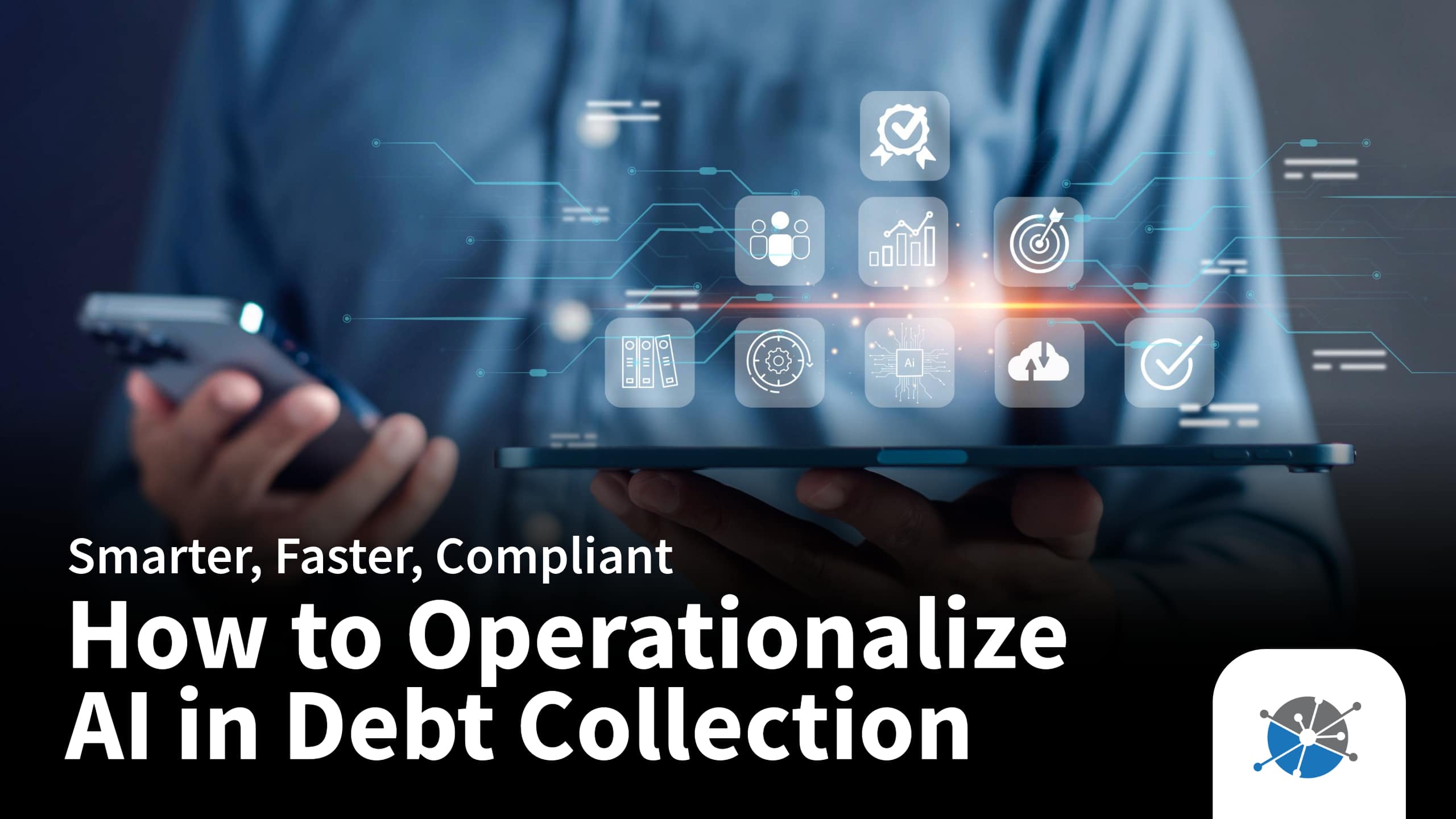
ARM’s digital transformation is here. Now.
While the internet and digital technology have transformed much of the global economy, change has come more slowly to the accounts receivable management (ARM) industry. That means that collection agencies, debt buyers and their clients have missed out on the early waves of new efficiencies and improved service models that just about every other industry now offers.
Yet change is definitely coming, and forward-looking agencies and buyers that embrace and prepare for that change will be able to win more business and provide better results for their clients – and a better experience for consumers. Most clients are already well down the digital path themselves. Financial institutions, hospitals and auto loan companies are all transforming and becoming part of the FinTech movement. FinTech, shorthand for “financial technology” is about the rapid digitization of the financial services industry.
One major catalyst for change is the Consumer Financial Protection Bureau, which has proposed new rules including clarifying how collectors may contact consumers. The world is moving from letters and landlines to mobile and online communication. Though consumers have been experiencing digital transformation for two decades, lack of regulatory clarity limits a collection agency’s willingness to reach out to a consumer over digital channels like voicemail, email, or text messages. The new rules will help the ARM industry embrace modern digital tools in their current workflow.
Technology can supercharge opportunity
The other catalyst is the rapid improvement in technologies like machine learning and data science, which enable call center agents to be much more productive. Technology can help tailor a digital experience that accounts for consumer preference, while making the workflow and the recovery operation more efficient and more profitable.
According to Kyle Christensen, vice president of product innovation at the collections technology provider, Katabat: “We’ve had algorithms sitting on the shelf for years, but they require an enormous amount of processing power and an enormous amount of structured data. Now that those two things are available, they’ve just hit the gas pedal and things are ramping up really fast.”
For an industry struggling with rising labor costs, along with ongoing margin compression, this is very good news. Together, the new rules and the new technology will help bring the ARM industry the tools to run more competitive and more profitable businesses.
What exactly is machine learning? It’s the science of getting computers to execute tasks and solve discreet problem sets without being told to do so. It involves sifting through big, complex stores of data to uncover trends, patterns, and customer preferences. And it does all that much faster and more thoroughly than human analysts could do it. For the ARM industry, that could mean finding the right time of day to approach a delinquent account and the preferred communications device and channel to do so.
Digital technology also lets agencies and buyers offer new payment methods like PayPal or Venmo, which can reduce the cost of making a payment. Tools like that can help the industry become more consumer-friendly, empowering people to manage their debt more holistically and more autonomously. Providing new options to reconcile debt in a way that fits them better might make the experience feel less negative, punitive or embarrassing.
Change is hard: Still some resistance
And yet, there’s still some resistance to change. That’s understandable. Digital transformation requires an investment in technology, along with people that can manage it. It requires a flexible, modular call center operation that can plug in best-of-breed technology. And it requires a management commitment to put technology at the center of the agency’s strategy.
“Deploying the new technology is generally easy, but some parts of it can be expensive,” says Gordon Beck, president of Valor Intelligent Processing, an ARM tech-enabled collection agency based in Jacksonville, Florida, that has embraced digital transformation. “Every agency has different clients, different scenarios, different situations. Handling these situations takes time. But overall people have been very open to it.”
Fortunately, collection operations can work with partners to build and deploy their digital strategy without investing in costly proprietary systems. Partners can provide the data and software architecture, plus data security and compliance, allowing their ARM customers to focus on driving their own business.
In just a few years, the ARM industry’s digital transformation will be complete, just as it is in advertising, banking, travel, entertainment and many other service industries. And just as an airline couldn’t compete today without offering online ticket sales, collection agencies will be expected to deliver faster, more efficient services through digital channels.
While letters will continue to have their place to establish debt validation, and debtors will continue to be responsive to calls, new channels will emerge. Plenty of people have given up their landline entirely – and many young people may not even know what a landline is. Reaching millennials requires electronic communications over digital devices, including laptops, mobile phones, and tablets.
Embracing a digital strategy today is an essential step toward protecting and growing an ARM business. The investments in technology will help keep up with changing regulations, protect profits, and keep building a book of business. Those who get it right will be rewarded by delighting their customers and outcompeting rivals that fail to keep pace.
Scott Ferris, Founder and CEO, Attunely
Scott Ferris is Founder and CEO of Attunely. Attunely is a cloud-based, yield optimization platform for the Accounts Receivable Management industry that uses machine learning to increase yield in the collection process, thus improving outcomes for creditors, lowering risk in the credit ecosystem, and facilitating a better consumer experience. www.attunely.com/learnmore
This article courtesy of Attunely.







